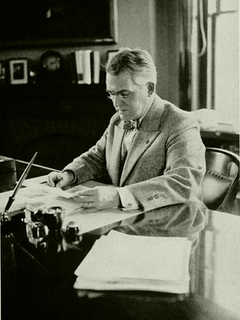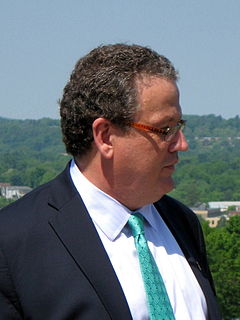Related Research Articles

The State University of New York College of Environmental Science and Forestry is an American, specialized, doctoral-granting institution based in Syracuse, New York. It is immediately adjacent to Syracuse University, within which it was founded, and with whom it maintains a special relationship. ESF is a part of the State University of New York (SUNY) system. ESF also operates facilities in the Adirondack Park, the Thousand Islands, elsewhere in central New York, and Costa Rica. The College's curricula focus on the understanding, management and sustainability of the environment and natural resources. ESF is considered by Peterson's to be the premier college in the U.S. for the study of environmental and natural sciences, design, engineering, policy and management of natural resources and the environment. The college has expanded its initial emphasis on forestry to include professional education in environmental science, landscape architecture, environmental studies, and engineering in addition to distinguished programs in the biological and physical sciences. ESF is ranked at 43rd in the 2017 US News & World Report rankings of the top public national universities. It commemorated its centennial in 2011.
In American higher education, particular to the state of New York, a statutory college or contract college is a college or school that is a component of an independent, private university that has been designated by the state legislature to receive significant, ongoing public funding from the state. The statutory college is operated by the university on behalf of the state, with the mission of serving specific educational needs of the state. New York's statutory colleges are administratively affiliated with the State University of New York (SUNY) system, and receive funding from SUNY's operating budget. There are five statutory colleges: four located at Cornell University and one located at Alfred University.
The New York State College of Forestry, the first professional school of forestry in North America, opened its doors at Cornell University, in Ithaca, New York, in the autumn of 1898. After just a few years of operation, it was defunded in 1903, by Governor Benjamin B. Odell, in response to public outcry over the College's controversial forestry practices in the Adirondacks. Less than a decade later, in 1911, the New York State College of Forestry was reestablished at Syracuse University by the New York State Legislature, with a mandate for forest conservation. The institution has continued to evolve and is now part of the State University of New York (SUNY) system, while still closely related and immediately adjacent to Syracuse University. Today, the State University of New York College of Environmental Science and Forestry, or SUNY-ESF, is a doctoral degree-granting institution based in Syracuse, New York, with facilities and forest properties in several additional locations in upstate New York and Costa Rica; it commemorated its centennial anniversary in 2011.
William L. Bray, Ph.D. University of Chicago, botanist, plant ecologist, biogeographer and Professor of Botany at Syracuse University, was the first dean of the New York State College of Forestry at Syracuse University, from 1911-12.

Hugh Potter Baker was a graduate of the Michigan State College of Agriculture; Yale's School of Forestry ; and the University of Munich. He was the second and fourth Dean of the New York State College of Forestry at Syracuse University, from 1912 to 1920 and 1930 to 1933.
Cornelius ("Neil") B. Murphy Jr. is Professor of Environmental and Sustainable Systems at the State University of New York College of Environmental Science and Forestry (SUNY-ESF). From 2000 to 2013, he was the third President of SUNY-ESF. Previously, he was president and chief executive officer of O'Brien & Gere, a large environmental engineering consulting firm based in Syracuse, New York. He has a Ph.D. in Chemistry from Syracuse University, and a B.A. in Chemistry from Saint Michael's College.
Ross S. Whaley was the second President of the State University of New York College of Environmental Science and Forestry, in Syracuse, New York, from 1984-99. An economist by training, Dr. Whaley had previously been Director of Forest Economics Research at the United States Forest Service. Other prior institutional affiliations included faculty and administrative positions at the University of Massachusetts Amherst, Colorado State University, and Utah State University. Dr. Whaley served as President of the Society of American Foresters in 1991. Following his tenure as President of SUNY-ESF, Dr. Whaley served as Chair of the Adirondack Park Agency from 2003-07.

The SUNY-ESF Ranger School, on the east branch of the Oswegatchie River near Wanakena, New York, offers A.A.S. degrees in forest and natural resources management. Established in 1912, the school is affiliated with the State University of New York College of Environmental Science and Forestry (SUNY-ESF). The Ranger School commemorated its centennial in 2012-13.
Joseph S. Illick was Dean of the New York State College of Forestry at Syracuse University, from 1944-51. He was a graduate of Lafayette College (1907), and the Biltmore Forest School (1913); he studied at the University of Munich, as well. Prior to coming to New York, Illick was State Forester, in Pennsylvania.
Frederick Franklin Moon was a forester, and head of the New York State College of Forestry at Syracuse University from 1920-27.
Nelson Courtlandt Brown graduated from Yale University with a Bachelor of Arts degree (1906) and a Master of Forestry degree (1908).
Edwin C. Jahn was Dean of the State University College of Forestry at Syracuse University from 1967-69. He received his B.S. cum laude (1925) and M.S. (1926) from the New York State College of Forestry; and his Ph.D. in Organic Chemistry (1929) from McGill University.
Samuel Newton Spring attended Yale University, receiving his A.B. degree in 1898; and M.F. degree in 1903 from the Yale School of Forestry after service in the Bureau of Forestry, predecessor to the USFS.
Svend Oluf Heiberg (1900–1965) was a silviculturalist, born in Copenhagen, Denmark, on July 22, 1900, educated at Yale University. He came to the United States in 1926, becoming a naturalized US citizen in 1934. Heiberg was Professor of Silviculture, and later Associate Dean for Graduate Studies, at the New York State College of Forestry at Syracuse University in Syracuse, New York. He and his wife, Aasa Gerlach, had two daughters, Lily and Karin, and one son, Eric. Heiberg died on February 5, 1965, in Syracuse.

Svend O. Heiberg Memorial Forest is a research forest located in parts of Onondaga and Cortland counties, and within the towns of Truxton, Preble, Fabius, and Tully in New York State. The forest is named after Svend O. Heiberg, former Associate Dean of Graduate Studies at the State University of New York College of Environmental Science and Forestry (SUNY-ESF).

Quentin Duane Wheeler is an American entomologist, taxonomist, author and newspaper columnist, and is the founding director of the International Institute for Species Exploration. He was the fourth President of the State University of New York College of Environmental Science and Forestry, in Syracuse, New York. Other positions have included: professor of entomology at Cornell University and Arizona State University; Keeper and Head of Entomology at the Natural History Museum in London; and Director of the Division of Environmental Biology at the National Science Foundation.
Edward E. Palmer was the first president of the SUNY College of Environmental Science and Forestry and held that position from 1969 to 1983.
Eustace B. Nifkin is the unofficial student and tradition at the SUNY College of Environmental Science and Forestry. Eustace B. Nifkin first appeared on the campus of the SUNY College of Environmental Science and Forestry in the 1940s.